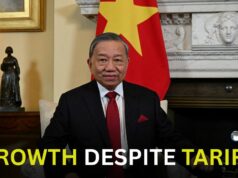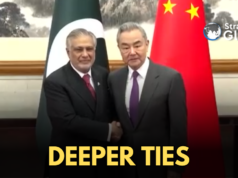A press conference in New Delhi by Afghanistan’s Taliban foreign minister, Amir Khan Muttaqi, set off a storm of controversy after women journalists were barred from attending the first event. The uproar was immediate, with many Indian reporters condemning the discrimination and questioning why the Taliban’s restrictive practices were being tolerated on Indian soil.
Speaking on StratNews Global’s ‘The Gist‘, Nayanima Basu, who attended the second press conference that was called by the Taliban as a direct result of the outrage over the first, explained the sequence of events and how the two press conferences were convened. Following public outrage after the first, a second press conference was hastily organised on Sunday, October 12, 2025, this time open to all reporters, including women.
Muttaqi attempted to explain the exclusion as a ‘technical issue,’ a claim few found convincing. During the second interaction, he faced tough questions about women’s rights, the killing of Reuters photojournalist Danish Siddiqui, and Afghanistan’s deteriorating security situation. While he answered every question, even some in Hindi, Basu noted that many of his responses were evasive or false, especially his claim that men and women were treated equally in Afghanistan.
“I got attacked on X and also on social media that that (the venue) is Afghanistan’s territory. It is really not so because we have not given formal recognition to the Taliban government yet,” explained Nayanima. “Unless you do that and we know what is going on inside the embassy, right now, it is not really Afghanistan’s territory, so to say.”
Interestingly, the embassy staff in Delhi, including Afghan nationals and Indians, reportedly refused to hoist the Taliban’s white flag or serve the delegation, keeping instead the former Afghan republic’s tricolour on display. This silent protest underscored India’s ambiguous stance – engaging with the Taliban out of necessity while withholding formal recognition.
With Afghanistan, India has engaged in pragmatic diplomacy: balancing humanitarian outreach and security interests with a regime it fundamentally disagrees with. As Nayanima Basu noted, engagement is essential given China’s growing presence in Afghanistan and the tensions between Kabul and Islamabad. Yet, she warned, India must ensure dialogue does not normalise Taliban ideology or its suppression of women’s rights.




